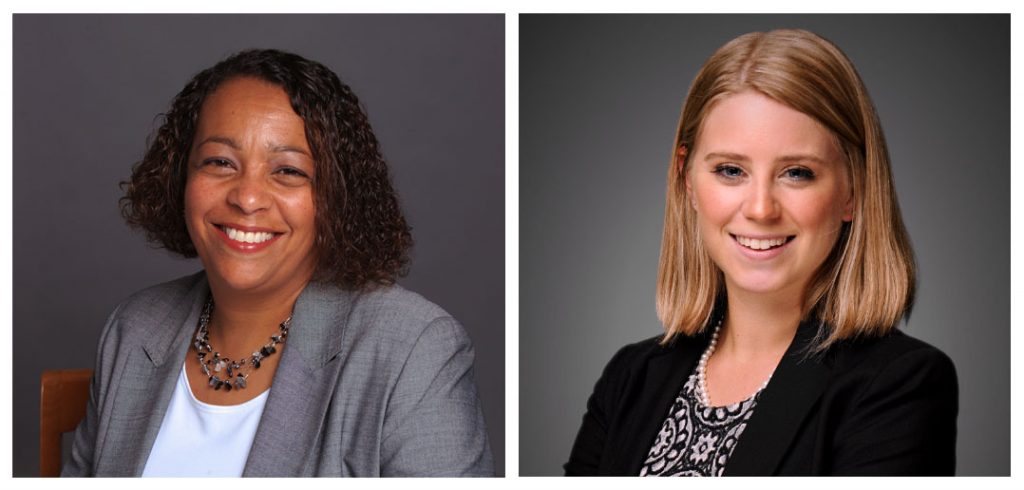On March 9, 2020, just before Fordham University shut down its campus, a client of Fordham Law’s Immigrant Rights Clinic (IRC) came to the Law School to pick up an envelope containing green cards for her and her two daughters. The day was over four years in the making.
Anna* had moved to the United States in 2015 with her children from her home in the Dominican Republic to live with her husband, an American citizen. The couple married the previous year after a long-distance courtship. Shortly after moving in with him, his behavior turned intensely abusive. The situation worsened, causing Anna and her children to leave and stay with an aunt. There, she found work to support her family, and one of her children began specialized treatment for a chronic medical condition. While things were improving for Anna and her daughters, her visa remained dependent on her estranged husband, who had petitioned the government to grant her permanent resident status.
“If someone obtains their lawful permanent residence by virtue of a marriage and that marriage is less than two years old at the time the individual obtains the visa, the person is granted what is known as conditional permanent residence,” explained Professor and IRC Director Gemma Solimene. “Within 90 days of the second anniversary of the granting of conditional residence, the couple needs to file a joint petition to remove the condition.”
However, having sought refuge from her husband, Anna could not meet these requirements. The IRC began working with her in January of 2016, roughly nine months after she moved to the United States to join her husband. For the next two years—four academic semesters and two summers—clinic students worked to gather sufficient documentation to file a petition to remove the conditions on Anna’s permanent residence and to waive the joint filing requirement. In these tasks, the clinic faced a dual challenge. First, to lift the conditions, evidence had to prove Anna’s relationship was bona fide and not initiated for a green card. Second, to waive the joint filing requirement, evidence had to also prove the husband’s abuse. Both of these are sufficient challenges in and of themselves.
In December of 2017, the clinic had gathered sufficient evidence to meet these challenges and filed a petition to remove the conditions on Anna’s residency. But, there was silence from the agency for almost two years.
Emily Allen ’19 worked with Solimene and the IRC as a postgraduate fellow during the 2019–2020 academic year. Just after joining the clinic in August of last year, the IRC received a governmental request for further evidence to support the case. After two years, the clinic had two months to gather the requested evidence, much of which had already been provided in the initial filing or would prove difficult to collect. “The government’s request for evidence was very out of touch, as they were asking for evidence that you would not imagine existed, given the circumstance,” Allen said.
Solimene and Allen worked aggressively to meet the request for evidence, and on March 6, the IRC received notice that the petition had been approved, along with three green cards for Anna and her daughters. Allen was able to call Anna and inform her that her case had been approved.
“All of this work that Professor Solimene, the other teams, and I put into this—filing things, drafting documents, and gathering evidence—it really does matter,” she noted. “You can lose sight of that if you only get to work on a case for one semester, a couple of hours a week, and you feel like you only move the ball ahead one more goal post. But to be there for the end of the process was really rewarding.”
Over the years, a number of clinic students worked on the case, including Jessica Jang ’17, Otilda Colon ’16, Alexandra Cornel ’17, Alexander Rosen ’17, Andrea Rodriguez ’18, Miriam Quarticelli LLM ’17, Saul Shuster ’19, and Dennis Donnelly ’18.
“These immigration cases present wonderful learning opportunities for students,” Solimene said. “They’re engaging with clients on life-changing and sensitive matters that require students to develop certain skills to be most effective in their lawyering. Oftentimes, with immigration cases—you think about people applying for asylum, people who are victims of domestic violence for example—clients have to provide details about very traumatic experiences, so students learn how to work professionally and sensitively with clients.”
*The client’s name has been changed in order to protect her privacy.

